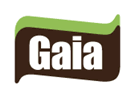Avi is a specialized basil grower in Israel. He farms close to the Jordan border. “We grow mostly basil,” says Avi. “We have about 30 hectares.” This area is entirely covered throughout the year - in the summer with plastic, and in the winter with netting.
One of the products being grown by the company is okra.
The basil is grown in rows far apart from each other. “Firstly, if the plants grow too close together, it becomes too humid.” High humidity encourages disease formation. “We also need space for the machine that sprays the crops.” This is done at night.
“Growers like Avi are taking over unused greenhouses,” explains Avinoam Zarfin of Gaia Herbs. This Israeli company buys basil from Avi. “Avi used to have 10 hectares; he now has 30 hectares.”
Costs up, prices down
“Expenses keep climbing,” agrees Avi. “The price of the product is going in the opposite direction. Nowadays, the main problem is the currency exchange rate. Up to now, the competition from Africa was a major issue. They have a lot of much cheaper products. The only thing we can do to survive is to be the best.”
Avi says his cultivation does not have to stay limited to basil. “Every year, we consider what our next product could be. Will it be profitable and grow well? Is there any advantage to growing it here instead of somewhere else?”
"If it grows, we will try it"
Avi used to grow capsicums and chilis. “We try everything. If it is possible to grow it here, and it is profitable, we do it.” Why not tomatoes? “There water is too salty,” says Avi. “We are on the edge of the Dead Sea.” Avinoam adds that this is the reason for the high mineral content of the water. The water table is also very high.
The soil is, therefore, also salty. “It has a salinity level of three to 3,5%,” explains Avi. “It is a challenge. But we get good products. They are much better tasting - sweeter and more aromatic - because of the salty soil in the area. The salty conditions cause the plants to have high Brix levels, he explains. “It is a benefit in this area.”
You can only grow basil, mint, chives in Ein Tamar. In Golan Heights, where it is much milder, they cultivate coriander and parsley.
Okra plants grow well in the area.
Israeli grower’s crops usually disease-free
The Ein Tamar region has an average yearly rainfall of only 30-50mm. “We have ten days a year of good rain.” The farm is supplied by pumping water from aquifers. There is a big reservoir too. “This reservoir’s water comes from different sources, so their salinity differs.”
Sharon Adiv, grower for Gaia Herbs grows courgettes from now until about February. “My yield is 20 tons/ha from one cycle. There is no market for the product after then. It is a profitable crop, but it is has a very small profit margin. We usually get a good price of about ten shekels. Even if you only do 20 tons per cycle, and you have to add all the labor costs, it is still profitable. Dates are, however, far more profitable.”
“We have 1,5 of new fields and 5 ha of older fields. When it comes to diseases, Sharon gets one main disease - downy mildew. “This crop, in particular, is being affected. I sometimes get red mites and leaf miners too. Because I have the nets, my crops are usually pest-free.”
Very few exporters remain
This Israeli company focus on the niche market. With the collapse of Agrexco Agricultural Export Company Ltd., a myriad of new companies sprang up. “The very day after it went under, there were 50 or 60 new companies,” says Avinoam Zarfin of Gaia Herbs.
“Today, maybe eight to ten exporters remain in Israel. Of these, there are perhaps three main players. The market changes constantly. If you are not in it, adapting and getting new sources, you will not survive.”
Agrexco was Israel’s largest exporter of agricultural produce, with the European Union one of its major markets. Agrexco went into liquidation in August 2011. “Growers used to sell everything to this company. These growers had to manage everything by themselves - packaging, material, marketing, regulations. There are also no new varieties being created.”
For more information: 
Gaia Herbs
Tel: +972-54-6777295/4
Email: info@gaiherbs.co.il / iris@gaiaherbs.co.il / berto@gaiaherbs.co.il
www.gaiaherbs.co.il
